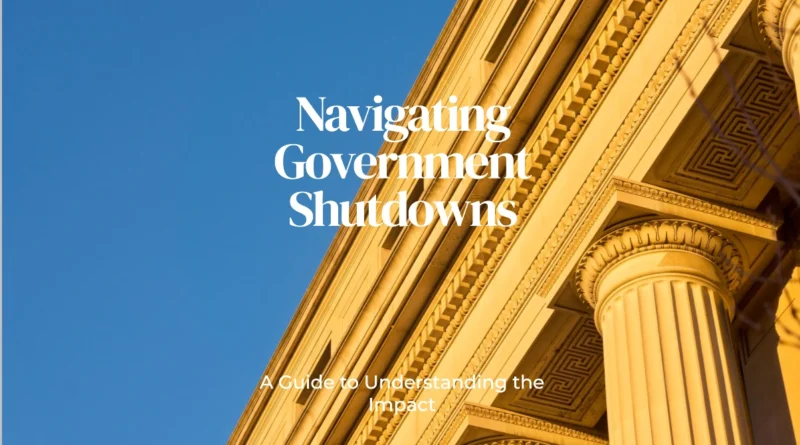Understanding Government Shutdowns in the United States
Government shutdowns in the United States have become a recurring issue that affects the functioning of the federal government, its employees, and the nation at large. These shutdowns occur when there is a failure to enact funding legislation, leaving critical government services suspended and federal workers without pay. In this blog post, we will delve into the dynamics of government shutdowns, exploring their causes, consequences, and historical context.
The Genesis of Government Shutdowns
Government shutdowns are a result of political gridlock in the United States Congress. They happen when lawmakers fail to pass a budget or a continuing resolution before the existing budget expires. This deadlock often arises from disagreements on government spending, with one party demanding cuts or policy changes that the other party opposes.
The Impact on Federal Employees
One of the most immediate and visible consequences of a government shutdown is the furloughing of federal employees. During a shutdown, federal workers deemed “non-essential” are placed on unpaid leave. This not only disrupts their livelihoods but also impairs the functioning of government agencies.
Let’s take a closer look at the impact on federal employees in the following table:
| Shutdown Duration | Number of Federal Employees Affected | Estimated Lost Wages |
| Short (1-3 days) | Thousands | Millions of dollars |
| Extended (2+ weeks) | Hundreds of thousands | Billions of dollars |
As we can see from the table, the longer a government shutdown persists, the greater the number of federal employees affected and the more significant the economic impact.
Economic Consequences
Government shutdowns also have far-reaching economic consequences. They disrupt various sectors of the economy, affecting businesses, investors, and consumers alike. Some of the economic ramifications include:
- Stock Market Volatility: Uncertainty caused by a government shutdown can lead to stock market volatility, affecting investment decisions and retirement savings.
- Delayed Economic Data: Shutdowns can delay the release of important economic data, hindering policymakers’ ability to make informed decisions.
- Reduced Consumer Confidence: Consumers may become more cautious due to the uncertainty associated with a shutdown, leading to decreased spending.
Political Implications
Government shutdowns often have political ramifications. They can damage the public’s perception of the government’s ability to govern effectively. Voters may hold elected officials accountable for their failure to reach a budget agreement, potentially impacting future elections.
Historical Perspective
Government shutdowns have occurred multiple times since the 1980s. Let’s examine some key historical shutdowns:
| Year | Duration | Causes |
| 1981 | 2 days | Disagreements over Medicaid funding |
| 1995 | 21 days | Budget disputes between Congress & Clinton |
| 2013 | 16 days | Opposition to the Affordable Care Act |
Each of these shutdowns had distinct causes and consequences, shedding light on the complexities of budget negotiations in the U.S. government.
The 2023 Government Shutdown
The most recent government shutdown, in 2023, highlights the ongoing challenges of reaching bipartisan agreements on federal budgets. Republicans in the House of Representatives, driven by hard-right demands for deep cuts, contributed to the budgetary impasse.
Conclusion
In conclusion, government shutdowns in the United States are a recurring issue rooted in political disagreements over government spending and policy. They have far-reaching consequences, impacting federal employees, the economy, and the political landscape. Understanding the causes and effects of these shutdowns is crucial for policymakers and the public alike to navigate the complexities of budget negotiations and strive for effective governance.
By shedding light on the impact of government shutdowns, we hope to contribute to a broader understanding of this pressing issue in American politics. As citizens, it is essential to stay informed and engage in constructive dialogues about the future of government funding and fiscal responsibility.




